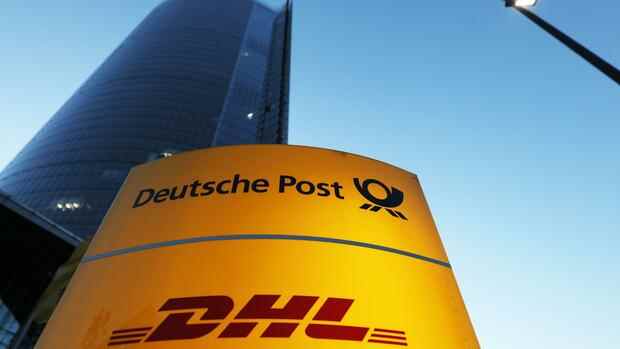Bonn Post boss Frank Appel announced further company acquisitions at the virtual general meeting of the group on Friday. “Our balance sheet has become significantly stronger over the past year,” he said. “That also gives us opportunities for acquisitions.”
The CEO was responding to inquiries from shareholders. Marc Tüngler from the Protection Association for Securities Ownership (DSW) inquired about the use of capital (“capital allocation”) after Deutsche Post’s capital cushion had increased significantly in the past financial year. In February, the board of directors and the supervisory board even passed a resolution that allows the group to hoard more capital than before.
Appel did not name specific companies in which Deutsche Post is interested. However, care will be taken to ensure that they create added value for customers after a takeover. Possible synergies, on the other hand, are only a secondary reason for the takeover. “What use are synergies if the company then has to lower prices because of weak business?” said the Post boss.
He announced that Deutsche Post would not pay high surcharges on the previous market valuation, a so-called premium, for the planned takeovers. “After all, takeovers are not a must for us,” Appel outlined his purchasing strategy.
Top jobs of the day
Find the best jobs now and
be notified by email.
The 60-year-old, who wants to make room for his successor Tobias Meyer at the top of the board in twelve months, has largely stayed away from takeovers since taking office 14 years ago. In doing so, he was reacting to the considerable problems that a shopping spree by his predecessor, Klaus Zumwinkel, had triggered – which had a massive impact on Deutsche Post’s share price for years. In the past financial year, the group even completely dispensed with M&A business.
Course reversal already heralded
In view of the enormous cash inflows that the logistics group accumulated in 2021, a course reversal has already taken place in the past few weeks. A few days ago, Deutsche Post completed a transaction that secured the spirits shipping company Hillebrand, which specializes in seafaring, for around 1.5 billion euros. “The company is a very well-established player in the industry,” said Appel, explaining the recent acquisition to the shareholders. “The yields are attractive.”
CFO Melanie Kreis made it clear, however, that the sharply increased capital cushion would also be used for organic growth. “We also want to offer shareholders an attractive return,” she promised, “especially in the form of dividends.”
For the current year, Deutsche Post DHL expects the record result of 2021 to be repeated, when the operating result came to eight billion euros. In 2023, the result should even increase to 8.5 billion euros. “We don’t see any departure from globalization,” said CFO Kreis, optimistic despite the war in Ukraine and China lockdowns. “Their benefits are just too great.”
Accordingly, the Group’s divisions of freight/forwarding, warehousing services, express and e-commerce services abroad would continue to grow. “Less growth is expected to come from the German postal and parcel business,” she predicted.
Congratulations from the ranks of shareholders for the record results of the past year, who were rewarded with a dividend increased by a third to EUR 1.80. Criticism, however, rained down on corporate governance.
Criticism of supervisory board members
Vanda Rothacker from Union Investment, for example, expressed serious doubts about the independence of Fraport boss Stefan Schulte, since he has been a member of the supervisory board for 13 years. Numerous shareholder representatives also torpedoed the election of KfW CEO Stefan Wintels to the supervisory board. His accumulation of offices contradicts the requirements of the German Corporate Governance Code.
At the same time, the asset manager DWS spoke out against the election of State Secretary Luise Hölscher. The representative of the Federal Ministry of Finance is just as little independent as Stefan Wintels, it said in a previously distributed statement. In the final election, however, Hölscher found 95.9 percent approval, Wintels got 89.9 percent of the votes behind him.
As expected, shareholders criticized the additional burden on CEO Frank Appel, who has also been Chairman of the Supervisory Board of Deutsche Telekom since the beginning of April. According to the Corporate Governance Code issued by the state, the CEO of a DAX company should not also be the chairman of the supervisory board of another.
Post board chairman Nikolaus von Bomhard rejected the criticism. “We consider all board members to be independent,” he said. The double burden is also not a problem for Appel, because the exception is only valid for one year. In addition, Appel will hand over part of his board duties to his successor Tobias Meyer in just a few weeks. Appel himself stated that he would not be overwhelmed with the additional task in terms of time.
More: E-commerce is losing momentum – freight is becoming a growth driver for Deutsche Post

